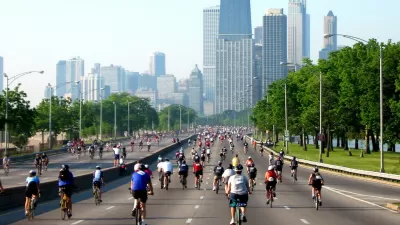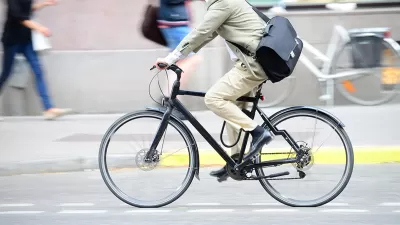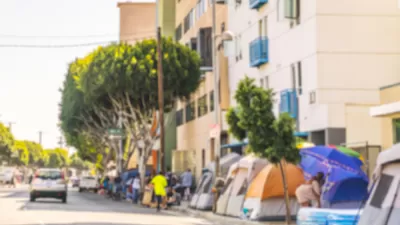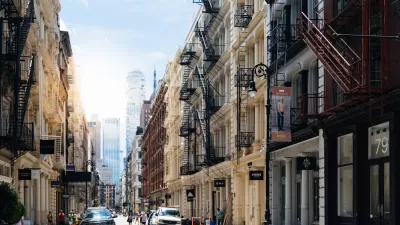A pair of articles explores the implications of data released in May by the U.S. Census about the increasing use of bikes among commuters. The articles, however, don't agree about the implications of the data for low income and minority citizens.

Matthew Yglesias, writing for Vox, responds to an anti-bike rant by Courtland Milloy in the Washington Post by pointing out a myth that the popularity of biking has been driven by an entitled, wealthy, bohemian class. The Census, according to Yglesias, has data to prove it: "in reality these are predominantly commuting modes of the less-privileged."
Yglesias also laments the implications for low income and minority populations caused by the misconception of biking of a privilege of the upper class: "What is true is that when it comes to bicycle facilities, just like many other municipal services, there is a tendency to shortchange low-income neighborhoods with inferior infrastructure. That's deplorable. But systematically downgrading a whole metro area's bicycle facilities — or murdering cyclists at random — in favor of a more car-friendly transportation system is going to disadvantage a disproportionately disadvantaged population in favor of the more affluent class of car owners."
Eve Bratman and Adam Jadhav reference May's Census data in a separate article for CityLab, taking a contradictory approach to that of Yglesias, citing places like Washington D.C. where increases in bike commutes have occurred in affluent neighborhoods but remain "far less common in the lower-income areas east of the Anacostia River."
Bratman and Jadhav present three key findings, the third of which reconciles least with Yglesias's reading of the data:
- "Poor respondents spend more time commuting."
- "Most people, poor and non-poor alike, still want cars."
- "Cycling just isn't popular among the urban poor (yet)."
FULL STORY: It's not just hipsters on bikes — cycling is most popular for poor people

Study: Maui’s Plan to Convert Vacation Rentals to Long-Term Housing Could Cause Nearly $1 Billion Economic Loss
The plan would reduce visitor accommodation by 25,% resulting in 1,900 jobs lost.

North Texas Transit Leaders Tout Benefits of TOD for Growing Region
At a summit focused on transit-oriented development, policymakers discussed how North Texas’ expanded light rail system can serve as a tool for economic growth.

Using Old Oil and Gas Wells for Green Energy Storage
Penn State researchers have found that repurposing abandoned oil and gas wells for geothermal-assisted compressed-air energy storage can boost efficiency, reduce environmental risks, and support clean energy and job transitions.

Private Donations Propel Early Restoration of Palisades Playground
Los Angeles has secured over $1.3 million in private funding to restore the Pacific Palisades playground months ahead of schedule, creating a modern, accessible space that supports community healing after recent wildfires.

From Blight to Benefit: Early Results From California’s Equitable Cleanup Program
The Equitable Community Revitalization Grant (ECRG) program is reshaping brownfield redevelopment by prioritizing projects in low-income and environmental justice communities, emphasizing equity, transparency, and community benefits.

Planting Relief: Tackling Las Vegas Heat One Tree at a Time
Nevada Plants, a Las Vegas-based nonprofit, is combating the city’s extreme urban heat by giving away trees to residents in underserved neighborhoods, promoting shade, sustainability, and community health.
Urban Design for Planners 1: Software Tools
This six-course series explores essential urban design concepts using open source software and equips planners with the tools they need to participate fully in the urban design process.
Planning for Universal Design
Learn the tools for implementing Universal Design in planning regulations.
Ascent Environmental
Borough of Carlisle
Institute for Housing and Urban Development Studies (IHS)
City of Grandview
Harvard GSD Executive Education
Toledo-Lucas County Plan Commissions
Salt Lake City
NYU Wagner Graduate School of Public Service





























